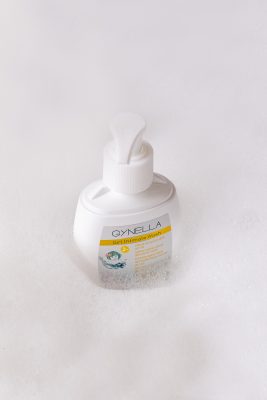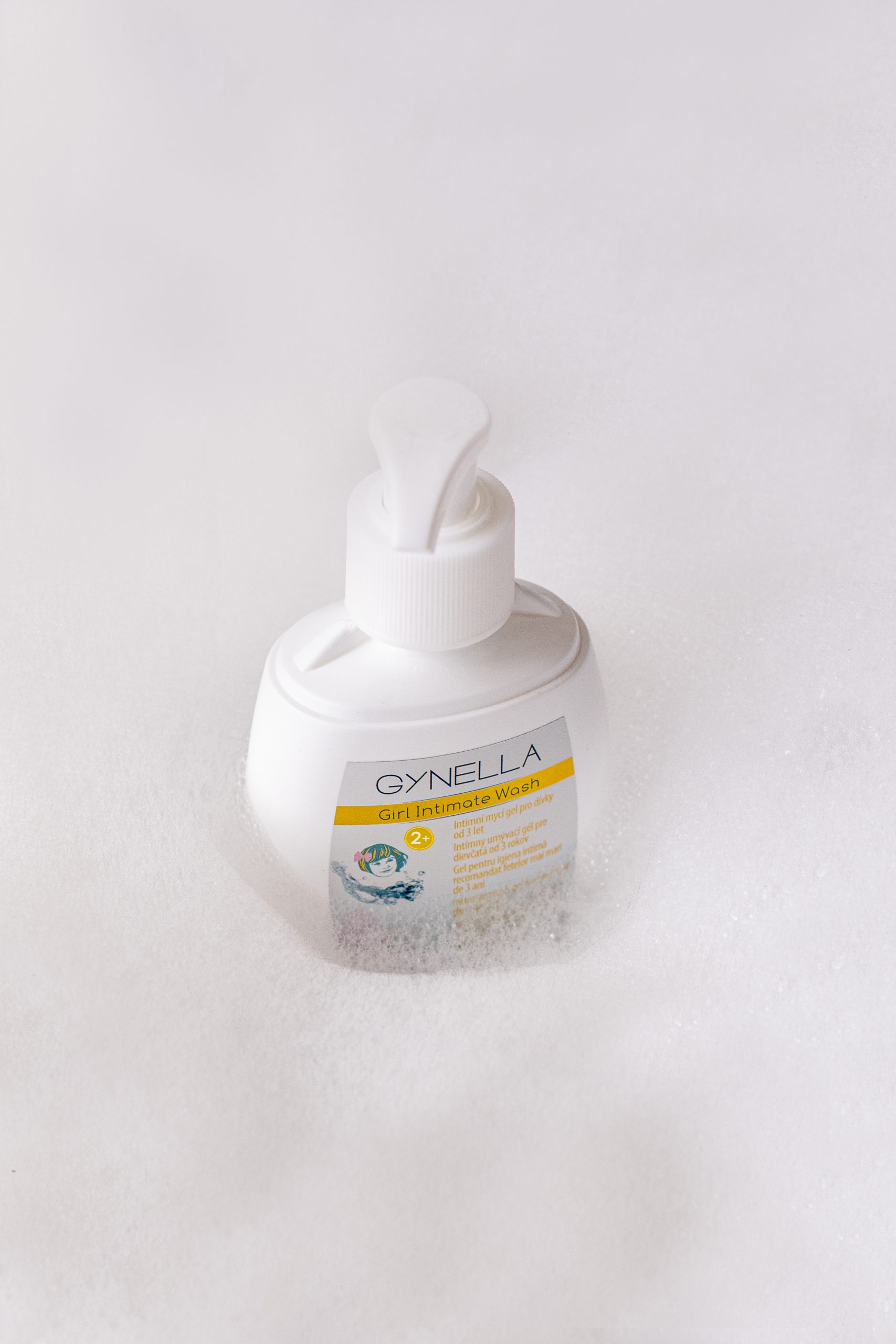Intimate Hygiene for Girls: Why Not Share Your Intimate Soap?
Today, we’ll discuss a very important topic that concerns all of us as mothers – how to handle the intimate hygiene of our daughters.
You’ll learn about proper washing and why using regular intimate soap is definitely not recommended.

Intimate Hygiene Starts from Birth
Caring for our daughter’s sensitive areas begins practically immediately after birth. We should receive practical guidance on this in the maternity ward.
During washing, we focus on the vulva (external genitalia), thoroughly washing the entire area first and using a moist cloth to remove the so-called smegma (a substance around the clitoris). Avoid scented wipes, as they can cause irritation.
After washing, we separate the labia to prevent sticking and adhesion. Finally, we gently dry the vulva and let it air for a while to prevent irritation.
Washing Frequency: Once a Week Enough?
Another aspect is the frequency of washing. You may have encountered the opinion that a child doesn’t need to be bathed every day, which is a misconception. Inadequate care can lead to itching and burning. Be cautious about adhesions of the vaginal entrance (known as vulvar synechiae), which is one of the most common gynecological problems in girls. However, excessive hygiene is not healthy either. Let’s find a balance without demanding showering multiple times a day from the child.
Are you wondering when to entrust hygiene to your daughter? This can be done only when she is able to wipe herself after using the toilet. Even then, continue to carefully monitor how she takes care of herself.
Choosing Intimate Gel for Children
The importance of intimate soap is underrated according to experts. We should keep in mind that these soaps are gentle on children’s skin and help develop healthy habits for the future. Ordinary soap, which stings and burns, or even mom’s intimate soap, is not suitable for intimate areas. Intimate wash gel for children should meet these criteria:
- Natural Ingredients: Look for soap with natural herbal ingredients like sage or chamomile. These substances are gentle on sensitive areas and support healthy skin.
- Fragrance-Free: Avoid soaps with scents that can irritate the skin.
- Adjusted pH: Prefer cosmetics specifically for girls that match their pH.
Remember that soaps that irritate, burn, or dry out are not suitable for a child. It is not recommended to share soap with your daughter because the pH of the vagina until the first menstruation is alkaline, while in an adult woman, it is acidic. Be cautious in your selection, and avoid soaps with attractive picture labels that do not guarantee quality. Ensure both your daughter and yourself quality intimate care that promotes health and well-being.
Discharge: A Signal of a Problem or a Common Matter?

While we encounter discharge numerous times in adulthood, spotting on a girl’s underwear is not normal. On the contrary, it is a sign of a problem – be it a vaginal infection or perhaps an object that the girl introduced during play or exploration of her own body. In such a case, do not panic and seek help from a specialist – a pediatric gynecologist. They should also be a bit of a psychologist, talking to the girl first and gradually preparing her for the examination. The presence of a mother throughout the examination is essential.
Don’t repeat the mistake of our parents; talk openly and help break taboos.
Initially, you may feel unsure or inappropriate during washing because it is a significant intrusion into privacy. When you feel uncertain, remember that your little girl needs thorough care to avoid difficulties and learn to take care of herself correctly. Our insecurity comes from the fact that children’s intimate hygiene is still a big taboo. However, we can only change that by being open with our children and the environment, sharing our experiences, and spreading awareness. So let’s do it!

